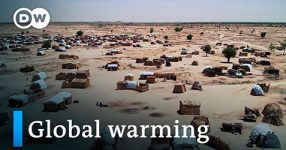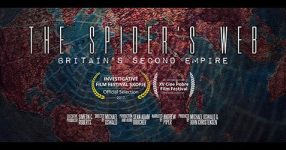The documentary “Stealing Africa” explores the socio-economic impact of multinational corporations, focusing on Glencore’s operations in Zambia. The title suggests an investigation into how wealth extraction from resource-rich African countries contributes to poverty, and the transcript unveils the complexities surrounding tax avoidance, environmental issues, and the power dynamics between corporations and local communities.
Wealth and Taxation in Rüschlikon
The narrative begins in Rüschlikon, Switzerland, a wealthy village home to Ivan Glasenberg, the CEO of Glencore. Following Glencore’s public offering, the surplus tax revenue in Rüschlikon prompts a proposal to use a portion to aid African communities affected by Glencore’s operations. However, the local resistance reveals the challenges in redirecting wealth, showcasing the clash between individual interests and global responsibility.
Copper Mining in Zambia
The focus shifts to Zambia, where the documentary delves into the copper mining industry, vital for the country’s economy. The narrative emphasizes the vast profits generated by multinational corporations, such as Glencore, while Zambia struggles to benefit proportionally. The issues of transfer pricing and tax avoidance come to light, showcasing the exploitation of Zambia’s resources without due financial compensation.
Environmental Impact and Health Concerns
The documentary raises environmental concerns surrounding Glencore’s copper plant in Zambia. Residents complain of air pollution, contaminated water, and health complications. The lack of transparency and accountability regarding emissions and adherence to environmental standards unveils the challenges faced by local communities in holding corporations responsible for their actions.
Privatization and Corruption
The privatization of Zambia’s copper mines is explored, shedding light on the questionable negotiations and corruption during President Chiluba’s era. The involvement of foreign investors, particularly from Switzerland and Italy, further complicates the issue. The narrative underscores how privatization, driven by external pressures and financial institutions, might not always serve the best interests of the host country.
Efforts for Fair Taxation
Efforts to rectify the unfair taxation system are highlighted, with Zambia attempting to renegotiate sales agreements and tax laws. The documentary underscores the struggle for African nations to secure their fair share of profits from resource extraction. The role of international organizations, such as the OECD, is scrutinized, questioning their commitment to addressing the broader issues of wealth extraction.
Influence and Consequences
The influence of corporations and individuals in positions of power, such as Ivan Glasenberg, is emphasized. The narrative touches upon the controversial pardon of Marc Rich and the ethical implications of individuals benefiting from corporations with a history of legal violations. The consequences of corporate influence on political decisions and the potential impact on socio-economic justice are explored.
In conclusion,the “Stealing Africa” documentary leaves the issue unresolved, with Glencore rejecting audit findings and the persistent struggle for fair taxation. The overarching theme of wealth extraction from Africa, portrayed through the lens of Glencore’s operations, raises fundamental questions about corporate accountability, ethical business practices, and the role of global economic systems in perpetuating poverty in resource-rich nations.












